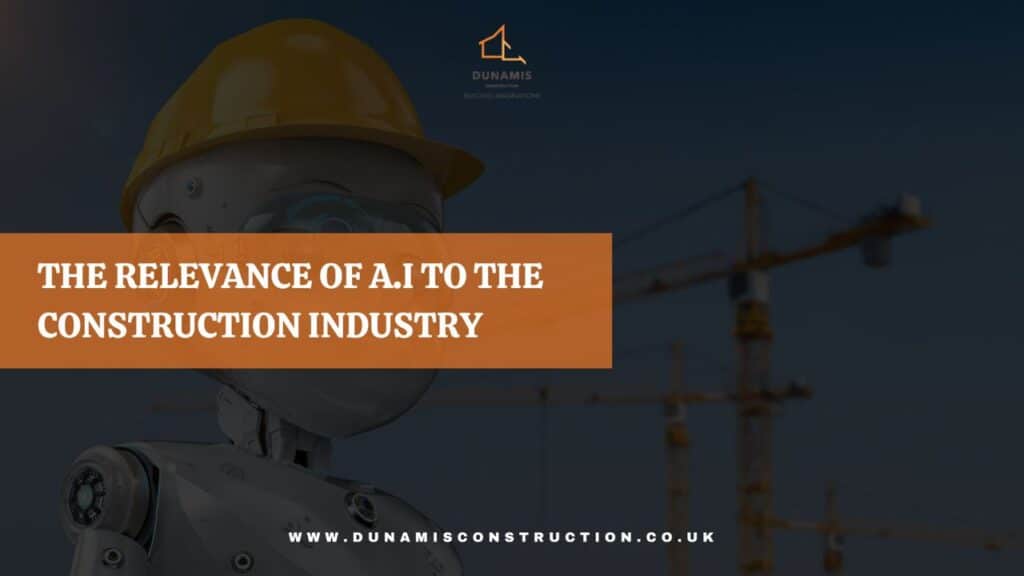Artificial Intelligence (AI) has emerged as a transformative force across various industries, and the construction sector is no exception. Over the years, the world has witnessed the evolving landscape of AI applications in construction.The construction industry, traditionally characterized by labor-intensive processes and complex project management, has embraced AI technologies to enhance efficiency, safety, and overall project outcomes. AI involves the use of algorithms and computational models that mimic human intelligence, enabling machines to perform tasks that typically require human cognition.
Therefore we will be looking at how relevant is the use of A.I to construction industry.
1. Project Planning and Design:
This is one of the ways you can introduce AI to to the construction industry. AI algorithms aid in generative design, exploring numerous design iterations based on specified parameters. This helps architects and engineers optimize designs for functionality, cost, and sustainability. Furthermore, AI models analyze historical data to predict project timelines, potential delays, and cost overruns. This proactive approach allows for better resource allocation and risk mitigation.
2. Construction Site Safety:
Construction site safety is another way in which AI has been used in the construction industry, AI-powered cameras and sensors on construction sites can identify potential safety hazards in real-time, improving overall site safety. These systems can detect unsafe behaviors, unauthorized personnel, or equipment malfunctions. Also, AI can predict potential safety issues, allowing for preventive measures to be implemented proactively.
3. Supply Chain Optimization:
Predictive Maintenance can allow AI algorithms predict equipment maintenance needs, reducing downtime and optimizing the lifespan of machinery. This is crucial for minimizing disruptions to construction schedules. It can also help in the Logistics and Inventory Management that is AI-enhanced systems optimize supply chain logistics, ensuring that materials are delivered efficiently and reducing excess inventory costs.
4. Construction Robotics:
In the field of Autonomous Vehicles and Drones, AI-driven autonomous vehicles and drones are increasingly used for site surveying, monitoring, and material transportation. These technologies enhance precision and efficiency while reducing labor-intensive tasks. Even though the construction industry has been termed ” labour intensive” however, AI-powered robotic systems can now perform specific construction tasks, such as bricklaying and welding, with high precision and speed.
5. Project Management and Collaboration:
There are AI-Powered Project Management tools that assist in project scheduling, resource allocation, and risk management. They provide real-time insights, helping project managers make informed decisions. Additionally, we have AI-driven collaboration platforms that facilitate communication and information sharing among project stakeholders. These platforms enhance coordination and reduce the likelihood of errors.
6. Energy Efficiency and Sustainability: This can be seen in the light of;
a. Energy Modeling: AI supports energy-efficient building design by simulating and optimizing energy consumption. This contributes to the construction industry’s commitment to sustainable practices.
b. Waste Reduction: AI algorithms analyze construction processes to identify opportunities for waste reduction, supporting environmentally conscious construction practices.
However there are Challenges and Ethical Considerations in the use of AI in the construction industry, The integration of AI in construction raises concerns about the security and privacy of sensitive project data. Addressing these issues is crucial to ensure the trustworthiness of AI applications. Also, as AI automates certain tasks, there is a need for upskilling the construction workforce to operate and maintain AI-driven systems, minimizing potential job displacement.
In conclusion, the relevance of AI in the construction industry is undeniable, offering transformative benefits across various facets of the construction lifecycle. From design optimization to safety enhancement, supply chain optimization, and sustainability, AI is reshaping the way construction projects are planned, executed, and managed. Embracing AI technologies is not just a matter of staying competitive but is increasingly becoming a necessity for construction firms aiming to thrive in a rapidly evolving industry landscape. Therefore, this analysis underscores the need for continued research, collaboration, and ethical considerations to ensure that AI integration in construction aligns with industry needs and societal expectations. As the construction sector navigates this era of technological transformation, the synergy between human expertise and AI capabilities will likely define the future of construction practices and project outcomes.

